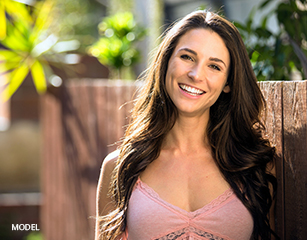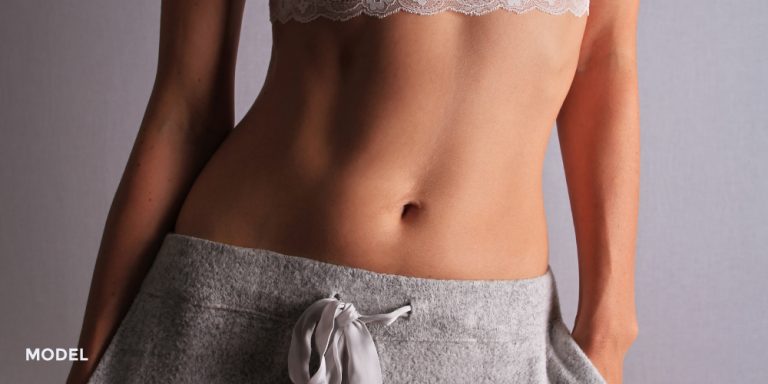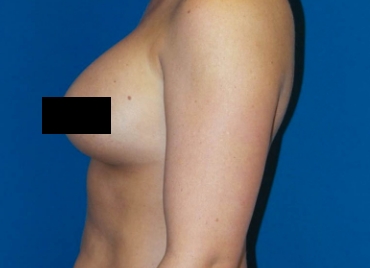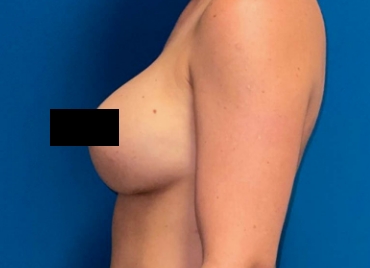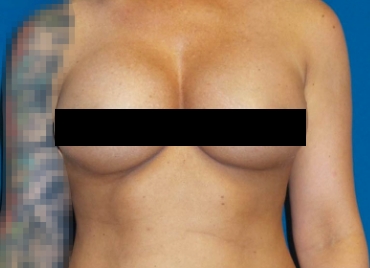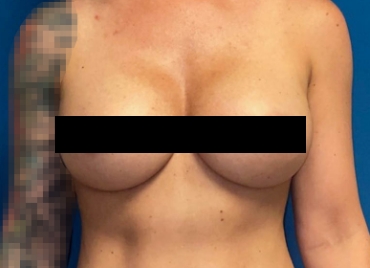Some La Jolla patients who have a breast augmentation will experience capsular contracture. This is a rare but sometimes frustrating complication from breast augmentation surgery that occurs when excessive scar tissue develops around the breast implant, causing the augmented breasts to appear tight, misshapen and feel firm or hard to the touch. While capsular contracture can be an uncomfortable and aesthetically displeasing complication to a breast augmentation surgery, the good news is that La Jolla women who are experiencing capsular contracture have options for improvement. By having a breast revision with La Jolla board-certified plastic surgeon, Dr. Brucker of Brucker Plastic Surgery, many La Jolla women have moved on to having the natural-looking, aesthetically pleasing breasts they originally desired.
What Causes Capsular Contracture?
Whether a patient will have capsular contracture after breast augmentation is unpredictable and there is no way to know beforehand whether or not you will experience this complication. The national average for this risk is about 5% and in my practice it is at about 1%. Your body’s natural reaction to placement of an implant or any foreign object is to wall it off with a small amount of scar tissue and this is normal and expected. Some patients just tend to form more scar tissue than others. Patients will often ask me, “Why does this happen?” There is no single answer but one theory is that some La Jolla breast augmentation patients are simply genetically prone to developing this excessive scar tissue around their breast implants. Another theory is that a micro-infection occurred due to various reasons including improper handling of the breast implant during surgery. Because the exact cause is somewhat speculative, I do everything possible to stack the deck in my patients’ favor: the implants are never directly touched after being removed from their sterile packaging and they are bathed in an antibiotic solution before placement. I then use the KELLER FUNNEL® during all breast augmentation and breast revision surgeries to place the implant in the breast pockets. This is called the “no-touch” technique and I believe it greatly reduces the instances of capsular contracture.
How Does Breast Revision Surgery Fix Capsular Contracture?
I see many women in my practice who have gone through multiple surgeries and multiple surgeons and still have recurrent capsular contracture. Some surgeons advocate the off-label use of Accolate or Singulair which are asthma medications as a preventative measure, but I have not found them to be effective in preventing or treating capsular contracture.
I generally recommend removing the original implants and the excessive scar tissue around them by performing a capsulectomy or capsulorrhaphy. I favor the use of a new implant in the affected breast(s) in the event that a micro-infection had stimulated the body’s response to form excess scar tissue.
Additionally, patients have a few options to help prevent capsular contracture from recurring. If a patient currently has subglandular (above the muscle) breast implant placement, breast revision involving removing and replacing the implants with textured implants could help prevent capsular contracture. I tailor the surgical plan to each patient based on her history of surgeries and sometimes recommend reaugmentation in the submuscular position (under the muscle).
Whether implants are over or under the muscle to begin with, some patients are best treated with placement of an acellular dermal matrix (ADM) such as Strattice which has been shown to greatly reduce if not virtually eliminate the risk of recurrence.
Treating capsular contracture can be a frustrating problem but there are options available and I’m always happy to discuss them in more detail during a one-on-one consultation.
Before & After Gallery
*Hover over each image
Talking With Dr. Brucker About Breast Revision Surgery
If you had an initial breast augmentation surgery and developed capsular contracture, you might be apprehensive or afraid to undergo a breast revision surgery. And Dr. Brucker understands why. With your first breast surgery, you had expectations of getting the breasts you’ve always desired, but that did not happen.
If you are hesitant to undergo a breast revision surgery, it’s more important than ever for you to talk with Dr. Brucker about the procedure directly. Capsular contracture is best treated in early stages. Researching breast revision surgery on the Internet will only provide you with limited information that may not be applicable to your specific situation. During a conversation with Dr. Brucker, you will get his knowledgeable opinion and advice on your unique case, which can help ease your fears about undergoing a breast revision.
You can schedule a consultation with Dr. Brucker today by calling (858) 707-7517.




